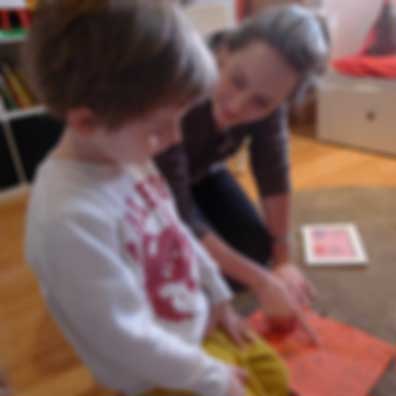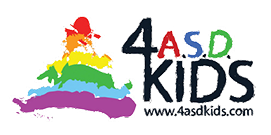
What is
ABA?
Applied
Behaviour
Analysis
Applied Behaviour Analysis (ABA) is a field of psychology that focuses on applying learning theories to different people and situations.
One specific application of these techniques is intensive behavioural intervention for children with Autism Spectrum Disorder.
Three decades of research have demonstrated the effectiveness of ABA principles for children with ASD.
Teaching techniques based on ABA have been shown to significantly improve the abilities of children with ASD to learn and develop.
Fundamentals of ABA
Breaking complex tasks into smaller tasks that can be taught more easily
Providing many opportunities to learn and master new skills
Using reinforcement to assist in the acquisition of new skills
Understanding the functions of behaviours (e.g. communication, attention seeking, avoidance, etc.) and developing programs to meet the child’s needs
Making objective, data driven decisions to guide our evaluations of treatment progress
Utilising effective teaching techniques, such as discrete trial teaching (DTT)
It's important to note that the techniques of ABA aren't just for children with ASD, although it has the most established evidence for this population.
ABA is simply based on effective learning and teaching principles.
Walk into any well-run classroom, or observe a parent who is effectively managing their child's challenging behaviour, and they are using ABA strategies!
Effectiveness Of ABA
Research has shown ABA to be effective in reducing disruptive behaviours typically observed in individuals with ASD, such as self-injury, tantrums, non-compliance, and self-stimulation.
ABA has also been shown to be effective in teaching commonly deficient skills such as communication, social, play, academic and self-help skills.
Two seminal studies by Lovaas (1987), and McEachin, Smith and Lovaas (1993), have proven the efficacy of ABA.
Additionally, thousands of studies have been undertaken since this time, which replicate these findings and provide additional support for ABA techniques.
Read more about ABA and it's effectiveness
FAQ's about ABA
What age should we start an ABA program?
Research shows that the younger the better (2 - 4 years of age), but it's never too late to start.
There is clear evidence that ABA can help individuals of all ages and abilities.
How do I choose an ABA service provider?
Not all ABA service providers are the same. ABA practitioners come from a variety of backgrounds and the way they work with children and families will depend on their experience.
Likewise, not all ABA programs are the same with some applications being more rigid and others more contemporary with creative and flexible programming.
You should look for a program and a service provider that will address your concerns about your child as well as:
Aim to increase skills across developmental areas including behavioural, communication/language, social, play and self-help;
Is individualised for your child and acknowledges their unique strengths and difficulties;
Has an emphasis on quality and skill generalisation within home, school and community settings;
Utilises evidence-based strategies;
Includes parent skill building;
Is structured only as needed (some children need more structure and repetition to learn, but others do not);
Considers different learning styles; and
Works in collaboration with parents, teachers/daycare staff and other professionals where necessary.
It is important you feel comfortable with your chosen ABA service provider and can establish a positive, working relationship as they will guide you and your therapy team and directly impact your child's development.
My child is high-functioning, will he benefit from ABA?
Absolutely! A high quality ABA program should be individualised for each child and consider their unique strengths and areas of need.
It's a common myth that ABA is not suitable for high-functioning children, but research shows that ABA strategies are incredibly effective for these individuals.
I was told ABA doesn't teach social skills, is this correct?
No! Again, another myth.
There is a huge body of research showing that ABA strategies are effective in teaching social skills in children with ASD.
A high quality ABA program will address social skills for the individual child, whether this be learning to tolerate being with other children, increasing joint attention, commenting during play, sharing, turn taking, following the rules of a group game or initiating conversation with peer.
ABA can be applied not only in one-to-on but also in a group setting. Many service providers include "play dates" in sessions with the child's peers.
How many hours should we do?
The research is very clear that children who receive more hours of quality behavioural intervention have better outcomes.
An Australian review has recently recommended that children with Autism receive as a minimum, 20 hours a week of intervention.
Research findings in the ABA field also indicate that 20 - 40 hours/week is very effective.
My child is very young, won't he get tired with 20 hours/week?
Fatigue is something you do need to watch carefully.
However, children as young as 20 months can be involved in an ABA program, and service providers must be adept at ensuring they work within the stamina of the child.
You can experiment with the number of hours you undertake.
Also, remember the sessions are supposed to be fun and playful. Most the time your child should love being there!
ABA sessions are usually 2.5 to 3 hours in duration. But if you see clear signs of tiredness, perhaps shorten the session length. Or, you could try having mini breaks throughout the session to go outside, grab a snack, listen to some music, and re-charge. Some families schedule longer sessions in the morning, when the child is fresher, then a shorter session in the afternoon. Overall, it’s up to you to read the signs in your child and see if you have the balance right. However, remember it is important to aim for a high number of ABA hours/week. Typically developing children learn and develop at a really fast pace leaving children with ASD to fall farther behind. It is essential that children with ASD are active participants in learning and every waking moment is seen as a learning opportunity that must be seized.
How do we find therapists?
Some ABA service providers hire their own ABA therapists to families and others don't.
There are pro's and con's to both options (eg. already trained therapists but more expensive vs cost effective but have to spend more time training).
If you have to recruit and employ your own therapists you could try the following:
Placing an ad on university job sites, seeking psychology, education or speech pathology students, or in your local paper
Email an ad to ABIQ members (just ask us!)
Look at ABIQ's therapist register
Word of mouth – sometimes other families will have staff who would like to work with other children
Online job recruitment websites such as seek or gumtree
If you are recruiting your own therapists, the pay rate is entirely up to you to negotiate and will depend a lot on the therapists' experiences and training.
Rates start at around $15 - $20 per hour for newer staff and gradually increase from there.
How much will ABA cost?
The cost depends on a whole range of factors including the number of therapy hours, number of supervision hours, hourly rate of therapists, whether you can access funding, etc.
The annual cost of an ABA program can range from $20,000 to $60,000 per year.
However, there are ways to reduce the cost through funding, rebates and tax refunds.
For more information, contact ABIQ.
How long should we do an ABA program?
That’s a difficult question to answer and depends a lot on the individual child's needs, family factors and cost.
Many children require services for the duration of their pre-school years (0 - 6 years of age) and research supports that quality, early, intensive intervention leads to positive outcomes.
It is generally recommended that you commit for at least 12 - 24 months of intensive intervention with many hours per week.
From there, and depending on individual circumstances, the intensity may be faded as the child develops skills and they begin learning more from everyday experiences, including in a group or classroom.
Embarking on an ABA program is not easy or a quick-fix, but for many families it is an incredibly rewarding journey leading to very positive outcomes for their children.
More Information
Contact Us
0491 133 658
PO Box 7053
Brendale QLD
Australia 4500
ABN: 21 344 641 592
© 2014 Autism Behavioural Intervention Queensland (ABIQ) Inc.. All rights reserved. All content is the sole ownership of Autism Behavioural Intervention Queensland (ABIQ) Inc. Reproducing, copying, transmitting or storing in any information storage or retrieval system part or all of the contents of any of these pages in any form or by any means is prohibited.
PLEASE READ THIS IMPORTANT DISCLAIMER
This web site is intended to provide basic information on Autism Spectrum Disorder and Applied Behaviour Analysis. The information contained in this site is not intended as, nor does it, constitute medical or other advice. Readers are warned not to take any action with regard to medical treatment or otherwise based on the information in this site without first consulting a physician. Autism Behavioural Intervention Queensland (ABIQ) Inc. does not necessarily endorse any of the information contained in this web site. The information contained in this web site is intended to be for your general education and information only and not for use in pursuing any treatment or course of action. Ultimately, the course of action in treating a given patient must be individualised after a discussion with the patient's physician(s) and family.
